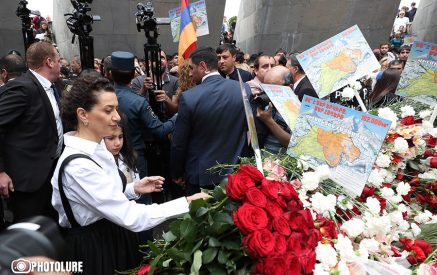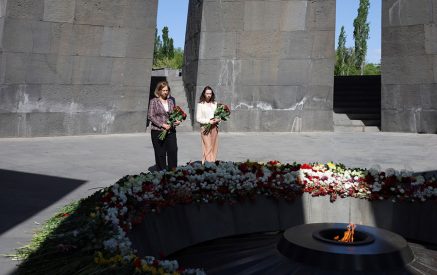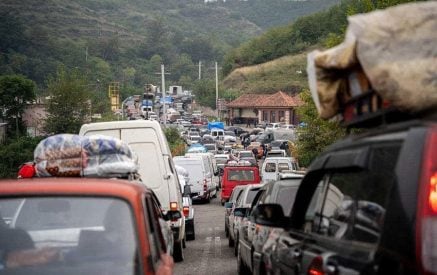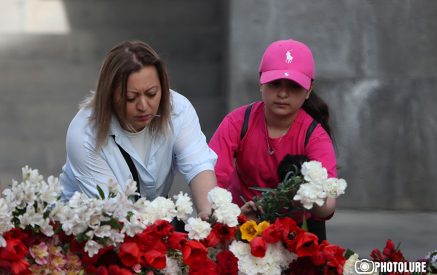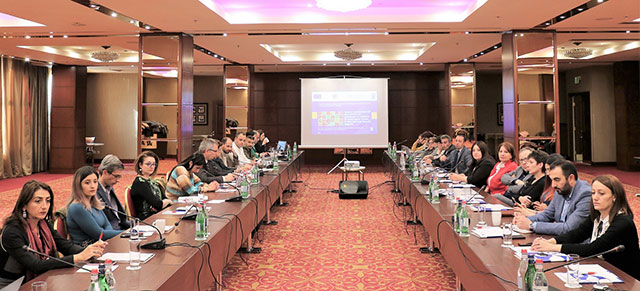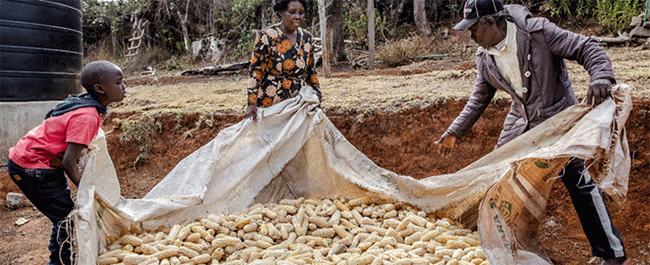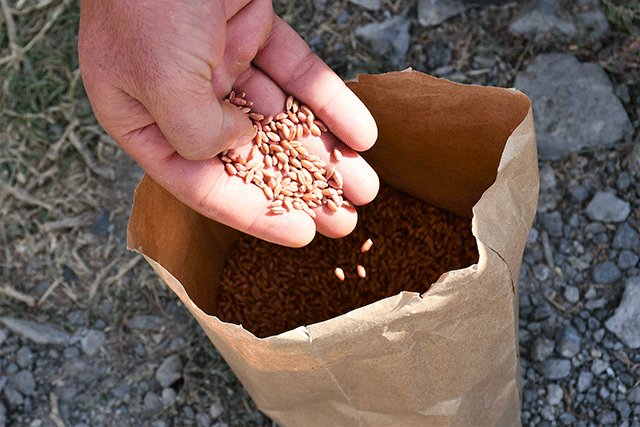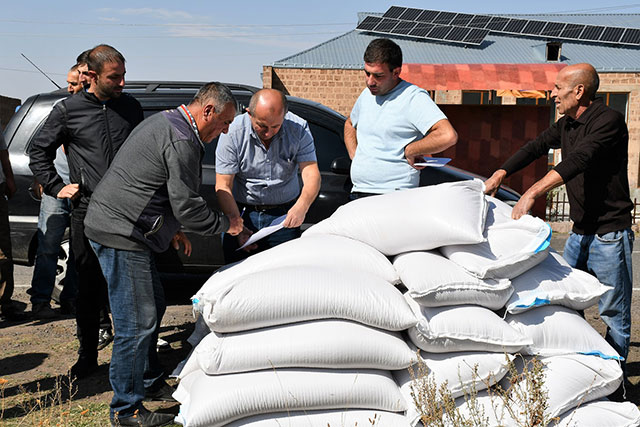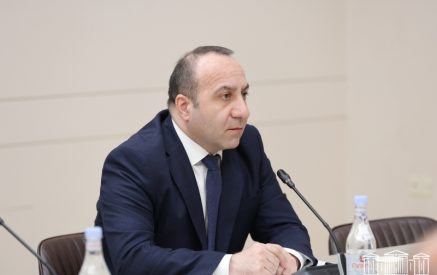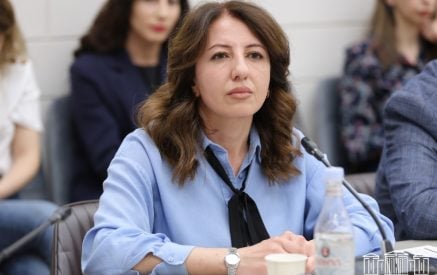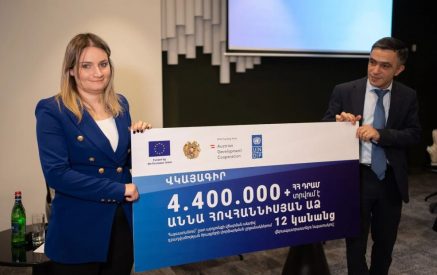With EU support, FAO brings together local and international actors to discuss ways to build the resilience of Armenian smallholder farmers in times of crisis
10 November, 2022, Yerevan – Today, the Food and Agriculture Organization of the United Nations (FAO) held a round table discussion entitled “Building Smallholder Farmers’ Resilience in Times of Crisis in Armenia.” The event was organized as part of the “EU Local Empowerment of Actors for Development (LEAD) in Lori and Tavush Regions” Project funded by the European Union and implemented by UNDP in partnership with FAO. Findings of studies carried out by FAO and CRRC-Armenia and the UNDP’s experience in the country were presented at the event, based on which participants discussed the ways to tackle supply chain vulnerabilities and to improve the resilience of smallholder farmers in the country.
The COVID-19 pandemic has affected almost every sector of the economy in Armenia, and agriculture is no exception. Smallholder farmers in Armenia are also being hit by a barrage of economic, environmental, and political shocks. Therefore, smallholder farmers are continuously challenged to anticipate, prepare for, cope with, and recover from shocks.
FAO’s “Impact assessment of the COVID-19 pandemic in relation to food value chains in the Lori and Tavush regions” report explores the situation of agricultural and rural development after a few waves of the COVID-19 pandemic in the Lori and Tavush regions. Conducted by CIVITTA Armenia (formerly EV Consulting CJSC) in December 2021, the study findings reveal that while COVID-19 created minor obstacles for family farms in Lori and Tavush, the border restrictions, supply chain disruptions, and widespread health issues exacerbated the existing gaps and challenges in the value chains. In other words, the global health crisis intensified the impact of existing socioeconomic and infrastructural issues adding additional difficulties for their agricultural livelihoods. In this context, farmers became more vulnerable to external shocks struggling with multiple challenges, such as economic, health and environmental. The pandemic once again highlighted the need for resilient, agile and ready-to-transform agricultural value chains.
Read also
CRRC-Armenia’s “Community-level multidimentional poverty in Armenia” research measures multidimensional poverty and vulnerability to COVID-19 on the community-level in the regions of Lori, Shirak, and Tavush. The development of a multidimensional poverty index targets the measurement of acute poverty. Acute poverty refers to those living under conditions which do not meet internationally agreed minimum standards in indicators of basic functionings, and those living under conditions which do not meet minimum standards in several aspects at the same time. The report showed the importance of prioritizing rural communities in the three nothern marzes for future livelihood development projects.
UNDP presented the experience of the LEAD4Lori and Tavush regions project and its previous projects supporting local communities and population who live in areas with security concerns and/or affected by various emergencies.
The presentations were followed by a lively discussion on identified problems and recommendations on how to create scalable solutions to tackle future supply chain vulnerabilities.
A raft of state and non-state actors playing an active role in the country’s economic development gathered at the presentation of the reports, including representatives of Armenia’s Ministry of Economy and the Ministry of Territorial Administration and Infrastructure; the donor community including the EU Delegation in Armenia; as well as the civil society, development institutions, and research organizations.
Note for Editors
LEAD programme
The publication of the FAO report is part of the EU Local Empowerment of Actors for Development in Lori and Tavush Regions (“EU LEAD4Lori and Tavush Regions) Project funded by the European Union and implemented by the United Nations Development Programme in partnership with the UN Food and Agricultural Organization and in close cooperation with the RA Ministry of Territorial Administration and Infrastructure. The project also works with the RA Ministry of Economy.
The project is implemented in Lori and Tavush regions of Armenia as part of the European Union’s LEADER / Community-Led Local Development (CLLD) concept with the following objectives: a) mobilise, capacitate and incentivise local actors to define community needs-driven strategies in Lori and Tavush regions, b) build supporting infrastructure to prioritise, implement and sustain local-grown initiatives in Lori and Tavush regions and c) improve the capacity of the relevant ministries and other bodies and develop policy mechanisms at the national level for successful piloting and sustainability of the LEADER approach in Armenia.
NB: “Impact assessment of the COVID-19 pandemic in relation to food value chains in the Lori and Tavush regions” was produced with the financial support of the European Union. Its content is the sole responsibility of the author and do not necessarily reflect the views of the European Union, nor those of the implementing agencies.






































